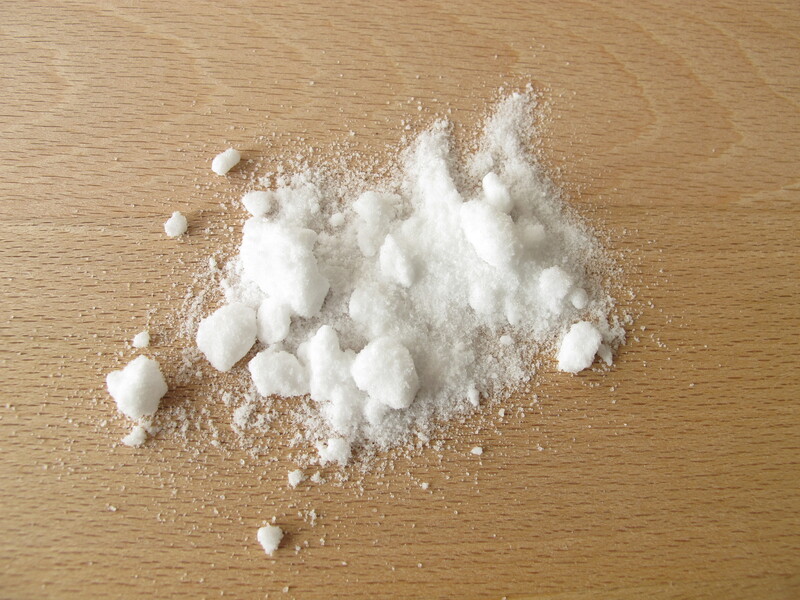Jewellery Cleaning Simplified for Stellar Results
Posted on 31/08/2025
Jewellery Cleaning Simplified for Stellar Results
Keeping your jewellery sparkling and clean isn't just about aesthetics; it's about preserving your precious items for generations to come. Whether you own heirloom diamonds, a cherished necklace, or trendy silver bangles, ensuring they shine bright enhances their beauty and value. This comprehensive guide will simplify jewellery cleaning and provide expert tips to achieve stellar results every time.

Why Jewellery Cleaning Matters
Our daily life exposes jewellery to dirt, oils, lotions, perfumes, and even air pollution. Over time, even the finest pieces can lose their lustre and brilliance. Regularly cleaning your jewellery prevents tarnish, removes grime, and restores that eye-catching sparkle. Plus, clean jewellery is more hygienic, reducing the risk of skin irritations or infections.
Let's dig deeper into jewellery maintenance simplified, offering everything you need to keep your precious pieces in pristine condition.
Key Benefits of Regular Jewellery Cleaning
- Restores Shine: Removes dirt, oils, and tarnish, revealing the brilliance of your gems and metals.
- Extends Longevity: Prevents buildup that can damage settings and materials over time.
- Healthier to Wear: Cleans away bacteria, allergens, and skin irritants.
- Detects Damage Early: Frequent cleaning helps you notice loose stones, worn prongs, or other issues before they worsen.
- Preserves Value: Well-maintained jewellery retains value and sentiment over years.
Mastering the Art of Jewellery Cleaning at Home
Choosing the Right Method
Before cleaning, always consider the type of jewellery and its specific materials. What works for gold may harm pearls; what cleans diamonds can dull opals. Here's a breakdown:
- Gold Jewellery Cleaning: Gentle soap and warm water work wonders.
- Silver Care: Use baking soda or specialized silver polish to remove tarnish.
- Gemstone Jewellery: Most clear stones (diamonds, sapphires, rubies) can be cleaned with mild soap, but softer stones (turquoise, opal) require special care.
- Pearls and Organic Gems: Only use a soft, damp cloth; avoid submerging or harsh chemicals.
General Home Jewellery Cleaning Solution
Here's a universal method for cleaning most gold, platinum, and durable gemstone jewellery:
- Prepare a Solution: Mix a few drops of mild dishwashing soap with warm water in a bowl.
- Soak: Place your jewellery in the solution for 10-15 minutes. This loosens grime and oil buildup.
- Gentle Brushing: Use a soft-bristled brush (like a clean toothbrush) to scrub crevices and settings gently.
- Rinse: Rinse with clean, lukewarm water. Avoid using the sink directly (to prevent items falling).
- Dry: Pat dry with a soft, lint-free cloth. Let air dry fully before storing.
Tip: For multiple pieces, ensure they do not touch in the solution to avoid scratching.
Top Mistakes to Avoid When Cleaning Jewellery
- Never use bleach, acetone, or harsh cleaners--these can weaken metals and dissolve glues.
- Avoid using paper towels for drying--they can scratch metals and gemstones.
- Ultrasonic cleaners may be too harsh for softer stones and delicate settings.
- Don't soak pearls or opals, as water can damage them permanently.
Specialized Jewellery Cleaning Methods
Caring for Silver Jewellery
Silver is beautiful but prone to tarnishing. Here's how to revive your favourite silver pieces:
- Baking Soda Paste: Mix three parts baking soda to one part water, forming a paste. Rub gently with a soft cloth, rinse, and dry.
- Silver Polishing Cloth: For quick touch-ups, use a dedicated silver polishing cloth.
- Anti-Tarnish Storage: Store silver in anti-tarnish pouches or cloth to slow down oxidation.
Diamond and Gemstone Jewellery Cleaning Tips
- Diamond Jewellery: Soak in a mild soap solution, gently brush, rinse, and dry.
- Colored Gemstones: Always check if the gemstone is hard (like rubies and sapphires) or soft (like emeralds, opals, turquoise). Use only mild solutions for soft stones, and never soak them.
- Professional Cleaning: For high-value or sentimental pieces, consider occasional professional jewellery cleaning for optimal, safe results.
How to Clean Costume and Fashion Jewellery
Fashion or costume jewellery usually uses base metals and synthetic stones. Moisture and harsh cleaners can ruin their appearance.
- Dry Wiping: Use a dry microfiber or soft cloth to gently remove surface grease and dust.
- Poor metals: Avoid soaking or using water, as it can cause the protective lacquer layer to peel.
- Non-abrasive Methods: Stick to gentle cleaning; if stones are glued, water can dissolve adhesive.
Pearl Jewellery Cleaning Explained
- Pearls are organic and porous. Never soak. Use a slightly damp, soft cloth to wipe them after each wear.
- Keep away from perfumes, hair products, and direct sunlight to prevent drying and discoloration.
- Store pearls in a soft pouch to prevent scratching.
Maintaining Jewellery Brilliance: Pro Tips
- Remove jewellery before showering, swimming, or heavy cleaning--chemicals and soaps accelerate dullness.
- Apply lotions, perfumes, and sprays before wearing jewellery to shield from residue and chemicals.
- Store each piece separately, ideally in soft pouches or jewellery boxes with compartments, to avoid scratches.
- Inspect jewellery regularly for loose stones, bent prongs, or broken clasps to avoid losing pieces.
- Bring valuable items to a professional once a year for a thorough clean and check-up.
Jewellery Cleaning Tools: Choosing the Right Accessories
The right tools make simple jewellery cleaning not just effective but enjoyable. Here's what to keep handy:
- Soft toothbrush: For detailed cleaning around gems and settings
- Microfiber cloth: Perfect for final polishing
- Jewellery cleaning solution or wipes: For a quick spruce-up
- Non-abrasive silver polish: Specially made for sterling silver
- Soft cotton swabs: For hard-to-reach areas
- Magnifying glass: To inspect jewellery for damage or leftover grime
Avoid: Toothpaste, baking soda (except for silver), or rough scrubbers on delicate stones and metals, as these can scratch or damage items.
DIY vs. Professional Jewellery Cleaning: Which Is Better?
DIY jewellery cleaning offers convenience and, for most daily wear items, is safe and cost-effective. However, for antique, heavily soiled, or high-value pieces, a professional jewellery cleaning service provides expertise, safety, and peace of mind.
When to Seek Professional Jewellery Cleaners
- Your piece has intricate, fragile, or old settings
- You own pearls, emeralds, opals, or other porous stones
- There are signs of substantial dirt, grime, or damage
- It's been years since your jewellery was serviced
- The item has sentimental or high monetary value
*Ask your local jeweller if they offer ultrasonic cleaning, polishing, or steam cleaning, each designed for specific types of jewellery.
Homemade Jewellery Cleaners: Are They Safe?
Homemade cleaning solutions are popular, but always double-check the materials in your jewellery before proceeding. Here's a safe all-purpose option:
- Mild soap and water: Best for gold, platinum, and tough gems. *Never use vinegar, lemon juice, or baking soda on soft stones or plated metals.
Caution: Do not experiment with household chemicals on valuable or sensitive jewellery.
How Often Should You Clean Your Jewellery?
Regularity depends on use and exposure. For everyday jewellery (wedding bands, favourite necklaces):
- Weekly: Wipe with a soft cloth to remove oils and fingerprints.
- Monthly: Deep clean at home with the soap and water method.
- Every 6 to 12 months: Professional inspection and cleaning for security and shine.
For special-occasion pieces, clean before storage and after use to prevent tarnish and wear.

FAQ: Jewellery Cleaning Simplified
-
Can I use toothpaste as a jewellery cleaner?
No. Toothpaste is abrasive and can scratch metals and stones. -
What's the safest way to clean pearls?
Wipe gently with a soft, damp cloth. Never soak or use soap. -
Is ultrasonic cleaning safe for all jewellery?
No. Avoid on pearls, opals, and items with glued settings. Consult your jeweller. -
How can I prevent tarnish on silver?
Store in anti-tarnish pouches, keep dry, and clean regularly with a silver cloth. -
Should I clean antique jewellery myself?
It's best to consult professionals to avoid damaging delicate, old pieces.
Conclusion: Jewellery Cleaning, Simplified
Cleaning your jewellery doesn't have to be daunting. With simple steps, the right techniques, and a little regular care, your treasures will shine brilliantly for years. Whether it's cherished family heirlooms or contemporary fashions, stellar results in jewellery cleaning are just a gentle rub away. Remember not to over-clean, treat each piece according to its material and type, and don't hesitate to let professionals handle your most valuable or fragile items. Shine on!
```Latest Posts
Achieving Excellence: Curtain Cleaning Done Right
Fight Mould Accumulation on Window Sills with Proven Methods
Spring into Cleanliness: Our Guide to Deep Cleaning Success
Rejuvenate Your Floors with Innovative Cleaning Techniques
Crafting clarity: the best efficient window cleaning strategies



